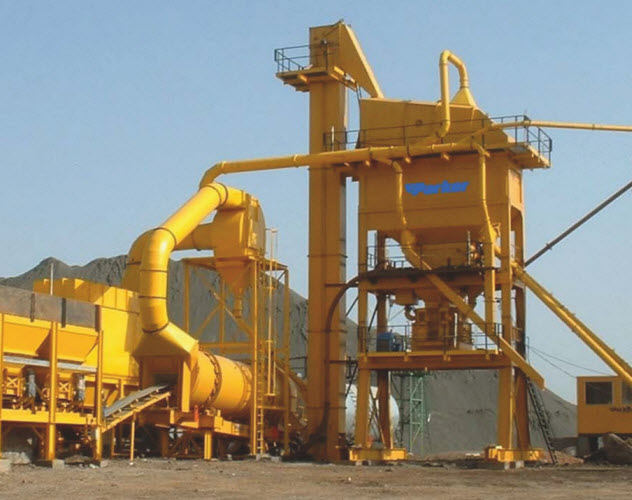Asphalt batching plants are essential for producing high-quality asphalt used in road construction and other infrastructure projects. Over the years, significant advancements in asphalt plant technology and design have been made, enhancing the efficiency, reliability, and sustainability of these plants. This article will explore recent innovations in asphalt batching plant technology, highlighting how these advancements have transformed the industry.
Advancements in Asphalt Batching Plants
Modular Asphalt Plants
Modular asphalt plants have revolutionized the industry by offering greater flexibility and scalability. These plants can be easily assembled and disassembled, making them ideal for projects that require mobility. The modular design allows for quick setup and relocation, reducing downtime and improving overall productivity. Asphalt Plant Manufacturers have embraced this innovation, providing versatile solutions that meet varying project demands.
Mobile Asphalt Batching Plants
Mobile asphalt batching plants have become increasingly popular due to their portability and ease of transportation. These plants are designed to be moved to different job sites, providing on-site asphalt production capabilities. This mobility reduces transportation costs and ensures fresh asphalt is available when needed, enhancing project efficiency. Mobile asphalt plants are particularly beneficial for remote or large-scale projects where establishing a permanent plant is not feasible.
Advanced Control Systems
Modern asphalt batching plants are equipped with advanced control systems that enhance precision and efficiency. These systems allow for real-time monitoring and control of the production process, ensuring consistent quality and minimizing waste. Asphalt Plant Manufacturers and Asphalt Machinery Manufacturers have developed sophisticated software and automation technologies that streamline operations and improve plant performance.
Energy-Efficient Technologies
Energy efficiency is a critical focus in the design of a contemporary asphalt mixing plant. Innovations such as low-energy burners, optimized drying systems, and heat recovery technologies have significantly reduced energy consumption. These advancements not only lower operational costs but also reduce the environmental impact of asphalt production. Asphalt Plant Suppliers are increasingly offering energy-efficient solutions to meet the growing demand for sustainable practices.

Dust and Emission Control Systems
Environmental regulations have driven the development of advanced dust and emission control systems in asphalt batching plants. These systems capture and filter out particulates and pollutants, ensuring compliance with air quality standards. Enhanced baghouse filters, scrubbers, and other technologies help minimize the environmental footprint of asphalt production. Asphalt Plant Suppliers and manufacturers prioritize these innovations to promote sustainability.
Recycled Asphalt Pavement (RAP) Integration
The integration of recycled asphalt pavement (RAP) into the production process has become a standard practice in modern asphalt batching plants. This innovation allows for the reuse of existing asphalt materials, reducing the need for new raw materials and minimizing waste. RAP integration not only supports sustainability but also lowers production costs. Asphalt Plant Manufacturers have developed systems that seamlessly incorporate RAP into the batching process, maintaining the quality and performance of the final product.
Warm Mix Asphalt Technology
Warm mix asphalt technology is another significant advancement that has gained traction in recent years. This technology allows asphalt to be produced at lower temperatures, reducing energy consumption and emissions. The use of additives and advanced mixing techniques ensures that the asphalt retains its performance characteristics while being more environmentally friendly. Asphalt Batch Plant operators benefit from the cost savings and reduced environmental impact of warm mix asphalt.
Improved Maintenance and Reliability
Innovations in design and materials have led to more durable and reliable asphalt batching plants. Enhanced wear-resistant components, automated lubrication systems, and predictive maintenance technologies contribute to longer equipment lifespans and reduced downtime. These improvements ensure that asphalt batching plants operate efficiently and consistently, meeting the high demands of modern construction projects. Asphalt Plant Manufacturers continuously strive to enhance the reliability of their products.
Sustainable Production Practices
Sustainability is a key consideration in the development of new asphalt batching plant technologies. The use of recycled materials, energy-efficient systems, and emission control technologies supports environmentally responsible production practices. Asphalt Plant Suppliers and manufacturers are committed to providing solutions that align with sustainability goals, helping the industry reduce its environmental impact while maintaining high production standards.
Conclusion
The asphalt batching plant industry has seen remarkable technological advancements that have improved efficiency, reliability, and sustainability. Innovations such as modular and mobile asphalt plants, advanced control systems, energy-efficient technologies, and sustainable production practices have transformed the way asphalt is produced. These advancements not only enhance the performance and cost-effectiveness of asphalt batching plants but also support environmental responsibility. As the industry continues to evolve, Asphalt Plant Manufacturers and suppliers will play a crucial role in driving further innovation and meeting the growing demands of modern construction projects.



